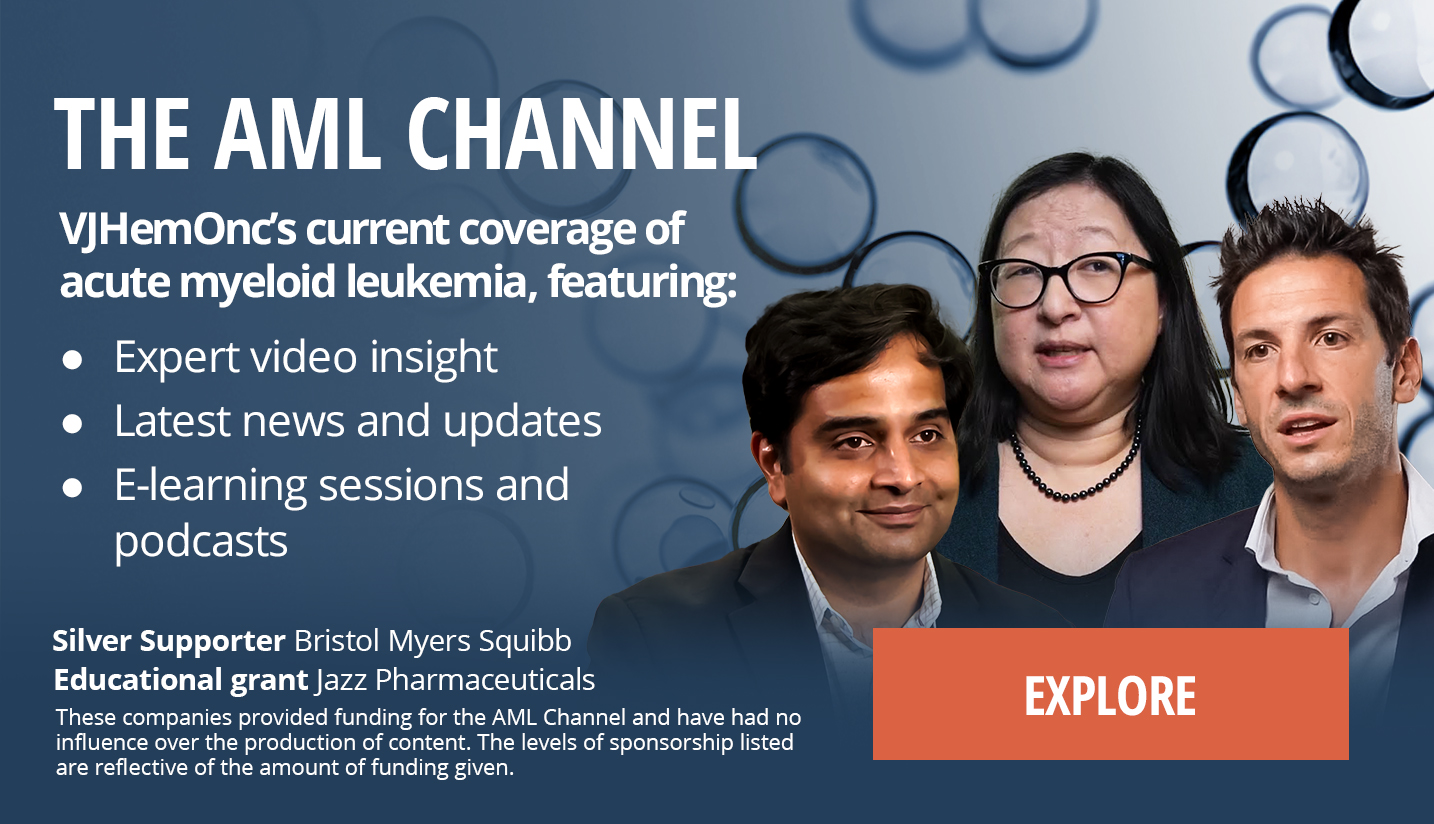So focusing on cooperative group trials, which is what I’ve been talking about here, cooperative group trials have traditionally been large randomized Phase III trials that are large numbers of patients and most of the patients are enrolled at large academic centers that have access to all of the testing and all of the drugs and agents and expertise that are required for AML trials. MiloMatch platform is a novel platform in AML clinical trial development...
So focusing on cooperative group trials, which is what I’ve been talking about here, cooperative group trials have traditionally been large randomized Phase III trials that are large numbers of patients and most of the patients are enrolled at large academic centers that have access to all of the testing and all of the drugs and agents and expertise that are required for AML trials. MiloMatch platform is a novel platform in AML clinical trial development. And there are several things that make it really new in terms of clinical trial development. First of all, rather than large randomized Phase III trials, we’re looking at signal-finding studies. So these are going to be smaller signal-finding studies that will have primary endpoints that are biomarker-driven, such as MRD endpoints that allow us to really rapidly ask questions that are about novel therapies and novel therapeutic strategies in an umbrella trial format. And that is really a new concept for cooperative group trials using this umbrella trial format. There are several other things that make this unique. First of all, all of the testing is being done centrally with NCI-sponsored funding. And that means that institutions that are smaller and see fewer numbers of patients but do not have the ability to do the diagnostics can also enroll these patients on study because all of the testing is being done centrally. It also means that because it can be done at smaller institutions, we will have a much larger variety of patients and demographics will be much more varied and much more representative of the population. And so really we’ll be able to extend our results to a more representative population, which I think is really important because our clinical trials generally that are done in the cooperative groups are not diverse because of the need to do it in large centers. And then the other thing that’s being done is that these are not going to be just one trial. These are going to be sequenced trials. So they’re going to be tiers of studies. So we are going to include in this platform, not just the diagnostics, but also induction therapies and then post-remission diagnostics and then tiers of studies. So the next level of studies will be with lower burden of disease, MRD-positive and MRD-negative disease, and then patients going on to transplant and then following up in terms of post-transplant remission maintenance trials to see whether or not there’s a need for intervening when there’s minimal burden of disease. And so really it’s an entire platform, which is a brand new approach to cooperative group trials.
This transcript is AI-generated. While we strive for accuracy, please verify this copy with the video.














